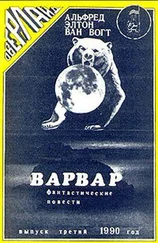One moment, Thomas — now that you are making comparisons — just go on an excursion to the Cordilleras of the Andes, and cross the Guyaquil to Quito. When you have seen the jaws of the Chimborazo and of all those monsters, the Cotopaxi , the Tungurawa , always ready to bury you in their lava for a hundred square miles, inhabitants included, then you can talk. For about twenty hours you go along on the black earth, the hard lava, in amongst the assembled volcanos.
And the condors are quite as good as kites, I think.
But I do not wish to find any fault with Kinchinjunga and its group. Enormous, one must admit.

All over the world one can make oneself understood by gestures. But in India, impossible.
You make a sign that you are in a hurry, that one must be quick, you wave an arm in a manner that the whole world understands, the whole world, but not the Hindu.
He does not take it in. He is not even sure it is a gesture.
How oppressive, too, is their mere presence!
What a relief to find oneself with the Nepalis, when one sees a smile, the natural smile that comes to you, that awaits its happy return from you, and begs you to disimpregnate yourself, to leave off, in charity, your meditation.
That smile of the Nepali, the most exquisite one I know, exquisite, not excessive, not disturbing, but delighted, undissembling, pure.
The tropics are full-blooded.
The mountains are pure spirit. Hands have ceased to serve as an intermediary. Play of hands, play of villains.
The eye alone sees it. The mountain is freed from dirt, from the senses, from the slime of vegetation, from odors.
The Hindu, in fact, is aware of it. And whoever desires holiness ‘finishes up’ in the Himalayas.
The Nepalis have chosen to live in the highest country in the world. Among them, the few visible Hindus, even the mendicant friars, the Gurus, the saints, appear as rubble.

The Nepalis are the op posite of the Hindus.
The Gurkhas, stocky, tough Mongols despising the Hindus and waiting for the first chance to pitch into them.
The Tibetans, like the Nepalis, are the opposite of the Hindus in quite different ways.
The Hindu is handsome and feminine. The Hindu woman’s inferiority is, in the first place, amazing. One might imagine oneself in an insect world: she is a head shorter than he.
And the Hindu shuts her up in the house. One does not see her. He is everything. She is nothing. I managed to see some Tibetans who were not the ordinary type of Tibetan, the latter being of a much more delicate build, and they were quite remarkable. Thus:
The Tibetan, male, was heavy, big, tall and not handsome, but rough.
The Tibetan, female, was heavy, tall, not beautiful, almost always strong and tough.
Some of these Tibetan women of the old type married as many as five men (at a time, naturally), and I have an idea she made them toe the line. If anyone had to be shut up, it is more likely to have been the men.
I saw one of these women who held the purse-strings and, with great assurance, ordered her meek, strapping, six-foot males about.

When something goes wrong with a Hindu, even if he is rich, married and the father of ten children, he says, ‘All right, if that’s the way it is, I am going to beg.’ He entrusts his fortune to his nephew and goes off to beg.
This is an accepted custom. Arriving at certain crossroads in life, he has but one thing left to do: begging, or rather, to live by begging.
The Hindu begs coolly, with conviction, with cheek, considering this employment to be his destiny. The Hindus (the Hindu is neither kind nor charitable) go their way and leave him, for it is his destiny.
The Brahmin who begs comes in without saying anything. If one gives him no matter how little he says nothing, but if you show the slightest impatience he will curse you unto the fifteenth generation. Then a whole flock of goats would not suffice to remove the curse.
Too late, the gods, who were waiting, immediately set to work speeding catastrophes on their way to the curse.
In Ceylon, a young man on a bicycle passed me at full speed. But a minute later he was beside me, holding his bicycle by one hand. He held out the other, ‘poor boy, no money.’ 1He had a marvelous brand-new bicycle with a gear box. He seemed to be in good health, young, and enthusiastic, I was very glad to be able to assist him.
Oh! that I might one day beg in a car, and meet a compassionate soul!
The Nepali begs with his smile. He looks so happy over your meeting. It is a very personal pleasure — it is really you whom he is delighted to find. So how can one refuse him?
(I am speaking of the children. The Nepali is not given to begging more than other people.)
Small coins are rare in India. When you see them, a kind of mild convulsion of the heart seizes you.
The impression of having a beggar in front of you is always painful. A pool of injustice that you cannot define.
With the Nepalis, begging is done so simply and fraternally. He begs from you today. Tomorrow it will be your turn; between us we can always manage.

The Tibetan priest begs with delicacy. He goes to the market, stands in front of the vendors, a tiny drum in his hand, as tiny as a mango, to which are affixed two little red strings holding a light ball of red thread. He shakes the drum from right to left, the little balls strike the drum; at the same time he shakes a tiny bell. He then accompanies this so very abridged orchestra by a song, weak and secret, indistinct, breathed rather than sung, a sort of plaint in sleep; this lasts a minute.
His begging bowl catches a few vegetables and a handful of rice which he places in his sack, then he passes on to the next vendor, thus making the rounds of the market.
Simple, discreet, inaudible save to the one concerned, I shall always hear that distressed sigh, restrained, delicate as though coming from a sick person who, with his lungs gone, wants to sing a last time.
A voice that might be passing gently through the bleeding bronchial tubes, or again, as if one had taught a dog to sing, who would learn and repeat his melody without too rashly forsaking his habitual sighs, those disturbing sighs that they give when they are asleep, caused by cares that seem familiar to us.
Voices like their eyes… pleated. Like the formulae in the prayer mills, another form of discretion.
But if you go into a monastery of lamas, or into a temple, where they spend the whole day, one sleeping and eating, while it is the other’s turn; and if you hear them singing prayers, mumblingly, bent over enormous loose-leaved books as large as valises, you would cease to recognize them. Deep voices with notes lower than those of the famous Russian basses; a kind of belching and obscene singing, that makes one turn back to see if it is not gross mockery and grotesque imitation. No, indeed, it is their grumbling everyday voice.
They have also an instrument, a sort of trumpet four and a half meters long, which they turn on the countryside to call people to prayers. A noise as from an enormous hippopotamus-like glottis comes from it, and this sound, excessively loud anywhere else, weak and obscure here in the Himalaya mountains, passes over the hamlets like a sigh.
1 (In English.)

Читать дальше















